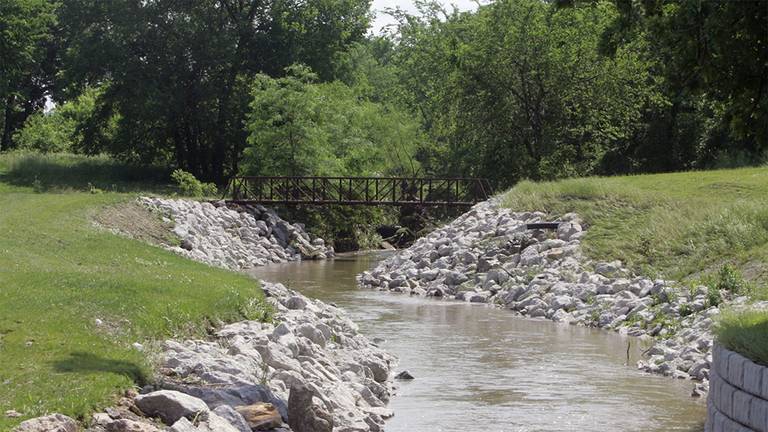Johnson County residents and leaders have been buzzing about the name of a local creek with a gruesome backstory.
“Negro Creek” is the name of a creek, a tributary of the Blue River, that begins in Overland Park and flows east for four miles into Leawood. A relatively small body of water, its name only recently came into the public focus.
Leaders, such as Johnson County National Association for the Advancement of Colored People (NAACP) President Jay Holbert, were blindsided by the discovery of its name.
“I didn’t even know we had a creek like that running through here, but the more you read about it and research it, there’s a lot of things that we really don’t know,” Holbert said.
The name of the creek dates back to 1856 when an enslaved black man successfully escaped his plantation, but white slave catchers pursued him. The black man eventually decided to kill himself to avoid capture.
According to a history report by UMKC History Department Chair Dr. Diane Mutti Burke and UMKC history doctoral candidate Deborah Keating, oral tradition was responsible for passing along the story behind the name.
“Suicide was indeed an action taken by some enslaved individuals who chose the freedom of death over continued enslavement and violence at the hands of their enslavers,” Burke and Keating said in the report.
The name of the creek didn’t officially become “Negro Creek” until the 1960s when laws began to take effect that demanded that all landmarks with the racial slur “n****” or “n******,” which is what leaders had formerly named the creek, be changed to “negro.”
Johnson County’s creek is one of the six bodies of water with the same name in the state of Kansas. Kansas holds just a portion of the 757 sites in the United States whose names include the term “negro” and other related phrases.
Discussions on changing the name have already taken place. The Johnson County website states that presentations to the Board of County Commissioners and Leawood Golf Course Committee took place on Aug. 26.
UMKC NAACP President Amanda Malone believes that a name change is a decision that needs to be well thought-out.
“Negro Creek is not the only landmark in America with the word ‘negro’ in it,” Malone said. “Take the Negro Leagues Baseball Museum on 18th and Vine in KCMO, for example.”
Malone said she is hopeful that whatever decision is made will honor those who were disrespected by the derogatory name.
“I’d expect those who are represented within this matter to be included in the conversation and to lead the initiative, whatever that may be,” Malone said.
lttrzd@mail.umkc.edu








